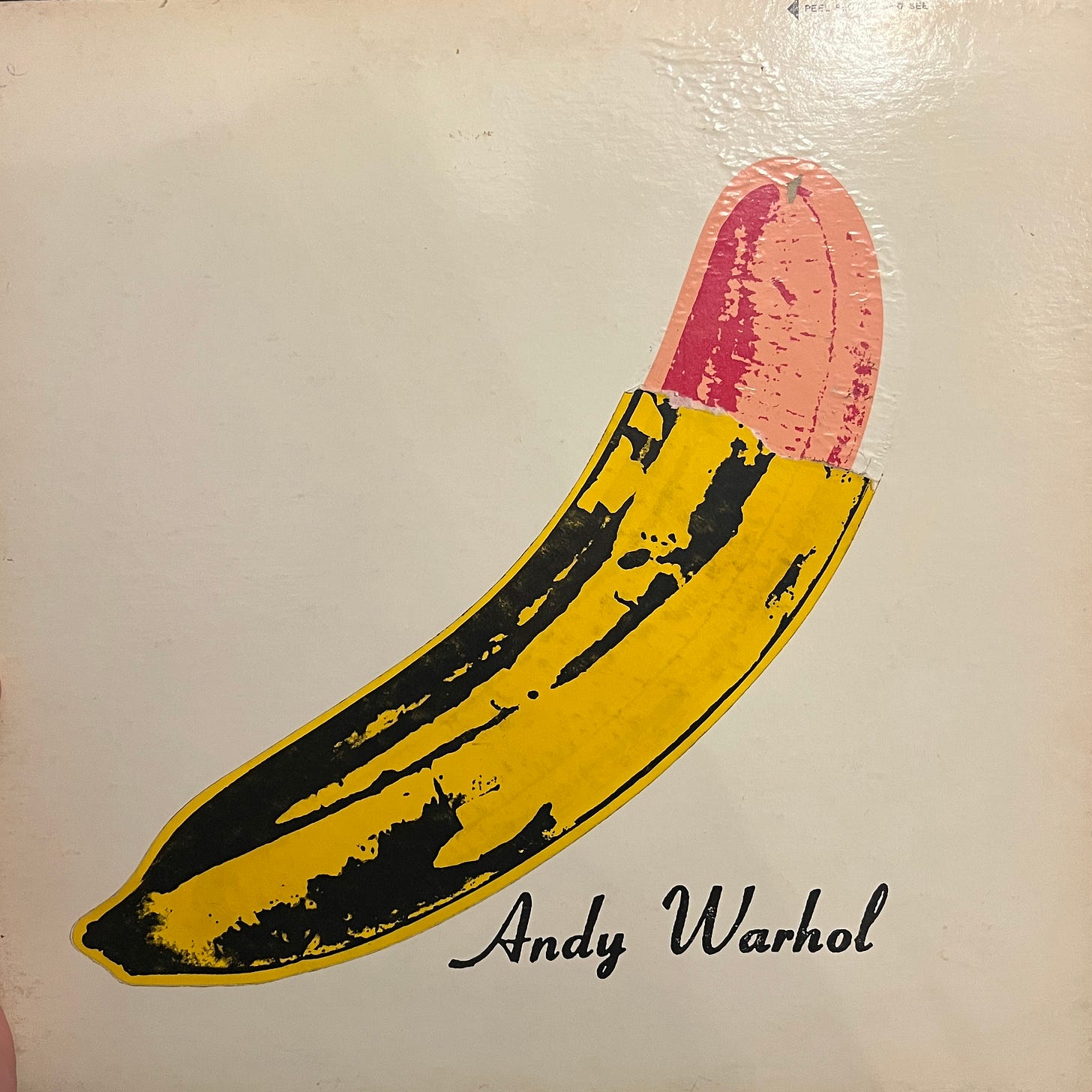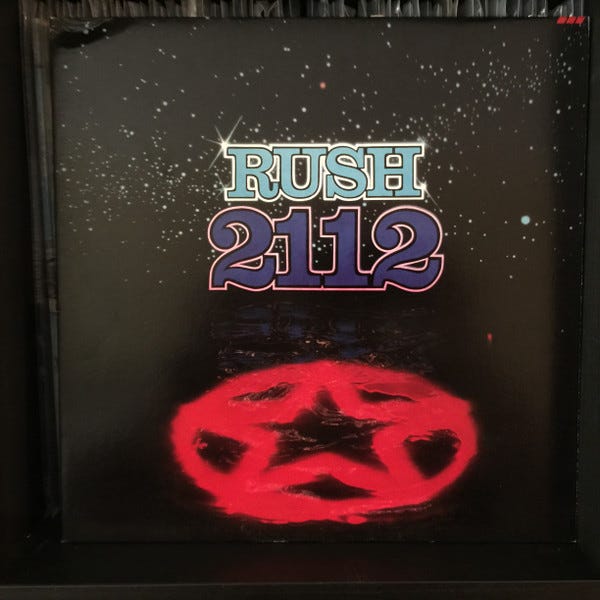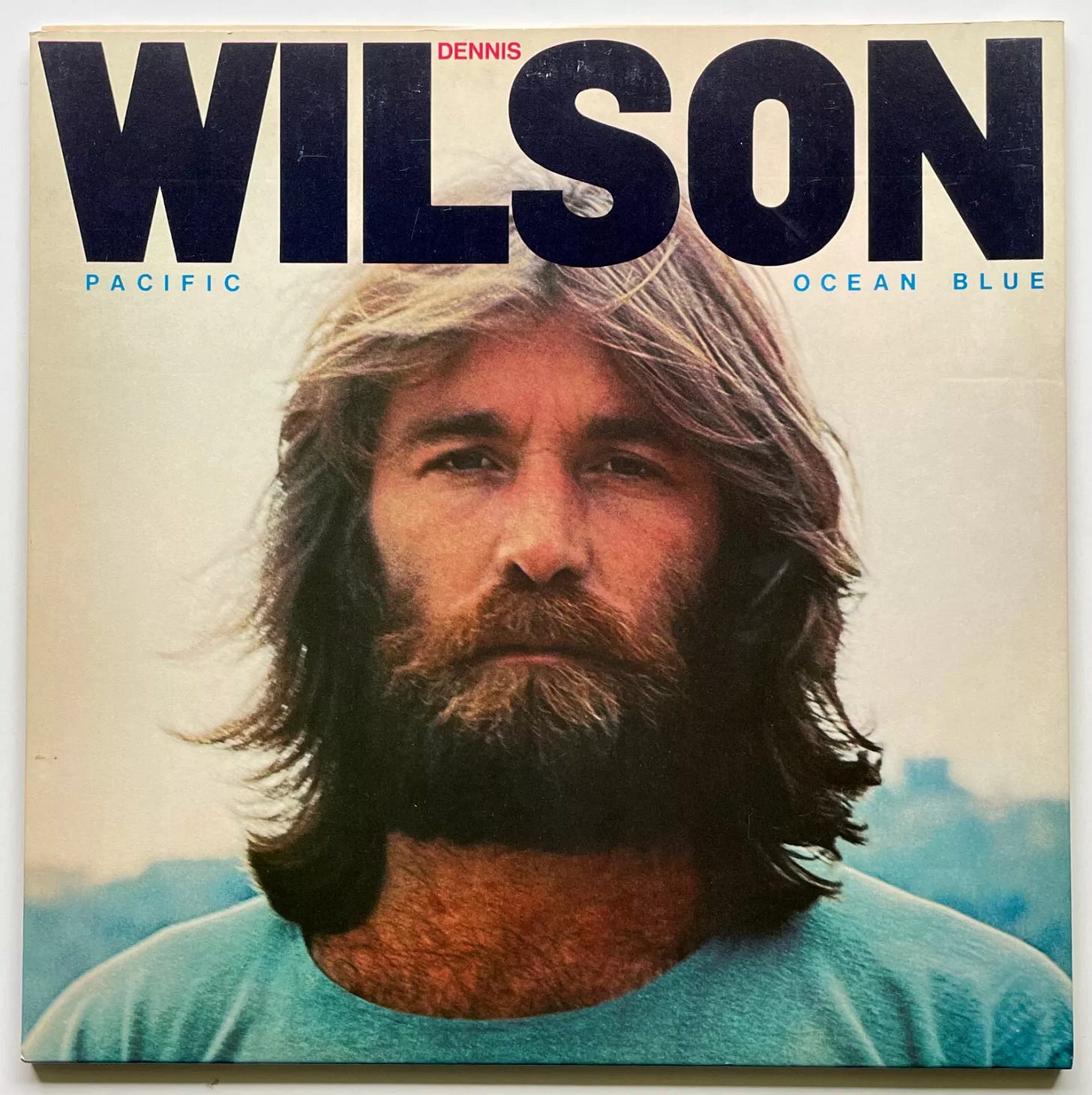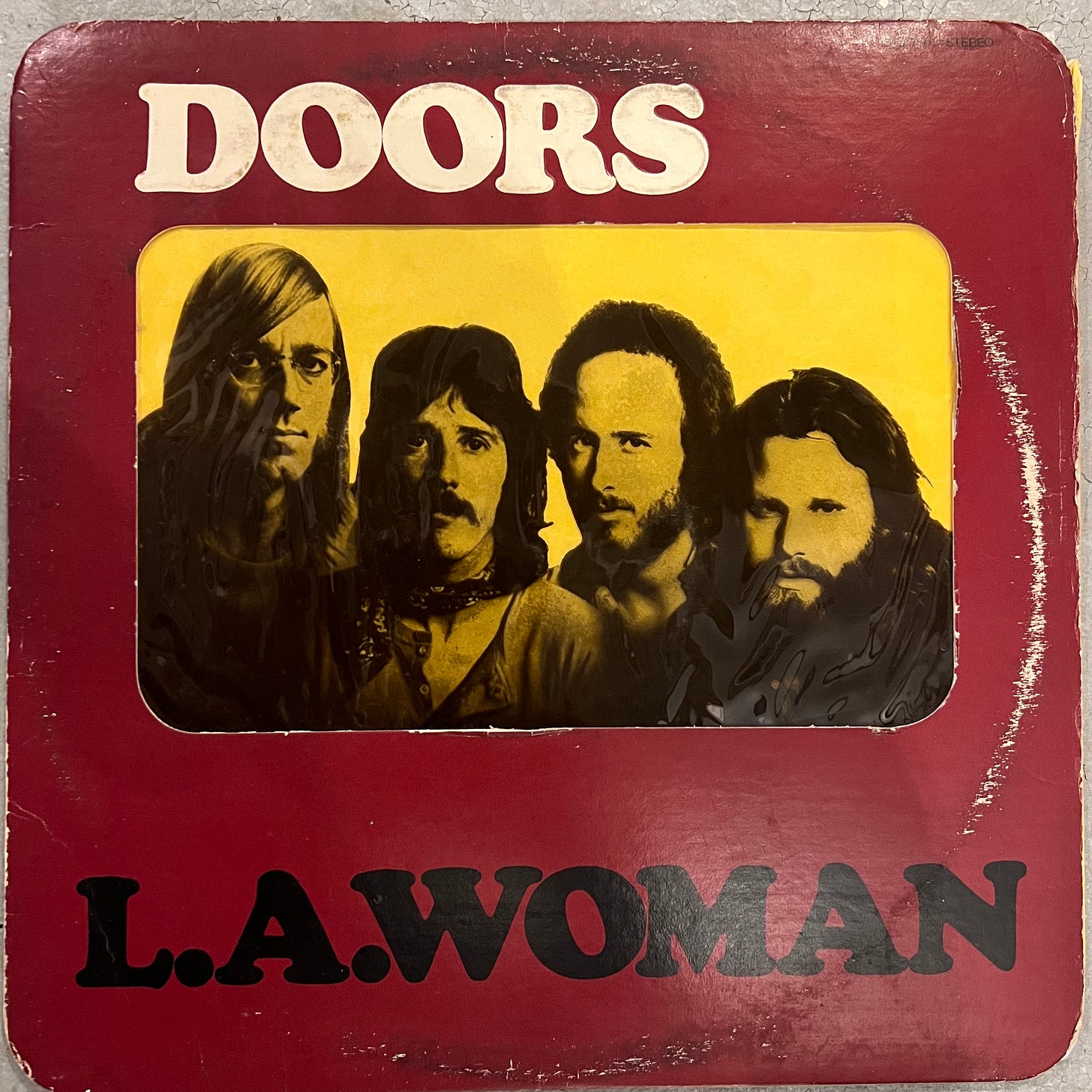I go digging. I don’t spend hours and hours in the stacks because I’m not producing music, but I AM an enormous fan. As such, I keep my weather eye open and my Spidey Sense on full. I’m drawn to places through intuition, happenstance, and sheer coincidence. This also happens to describe my mother’s sense of religion. Shit! I guess crate digging is my religion. This is about records I’ve found recently that I needed for my stacks.
The Velvet Underground, The Velvet Underground & Nico, 1967 mono, first pressing, banana 3/4, with Emerson sticker on back cover
The Velvet Underground & Nico carved a jagged, velvet-lined scar across music history. It took years to sell, but glam, punk, goth, and noise owe their crooked spines to this singular beast. Lou Reed and crew dished out dreamy pop (“Sunday Morning”), raw garage grit (“Waiting for the Man”), and skeletal R&B (“There She Goes Again”). But then, they twisted the knife—discordant chaos (“European Son”), soul-scorching beauty (“Heroin”), and Nico’s eerie, detached vocals, alien but perfect. Reed sang of drugs and debauchery when teen pop was still in poodle skirts, while Warhol’s bankroll let them push the limits no one else dared. This album still shocks, still burns, still thrums with nerve endings exposed. And now a mono first pressing sits in my stacks.
Tom Waits, Rain Dogs, 1985, first pressing
Rain Dogs is Swordfishtrombones after a three-day bender, a staggering dive into Tom Waits’ junkyard symphony of marimbas, accordions, and Ribot’s gloriously serrated guitar. It’s like The Threepenny Opera growled by Howlin’ Wolf, if Wolf had been raised in a flophouse with a broken jukebox. The album sprawls —19 tracks of chaotic brilliance and occasional missteps. Waits’ lyrics sometimes feel like they were ripped from a ransom note, more rhythm than reason. But when he reels it in Hang Down Your Head, the aching Time, the irresistible Downtown Train — you’re reminded this madman can still write songs that make you want to cry into your whiskey. No, it doesn’t shock like its predecessor, and yes, it’s uneven, but that’s Waits. Chaos is the point. Rain Dogs is messy, beautiful, and alive — proof that even when he’s stumbling, Waits still lands somewhere unforgettable.
Rush, 2112, 1976, white label promo, first pressing
2112 is where Rush stopped messing around and set their controls for the heart of prog-rock glory. After the muddled Caress of Steel, this was make-or-break, and they broke through big. The title track — a 20-minute epic in seven parts —channels Ayn Rand’s dystopian nightmares into a thunderous manifesto, proving Rush could shred and philosophize simultaneously. Side two balances the grandeur with tighter gems like A Passage to Bangkok and Something for Nothing. Rush’s declaration of immortality.
Dennis Wilson, Pacific Ocean Blue, 1977, first pressing
Pacific Ocean Blue is Dennis Wilson’s soul laid bare — a sun-soaked, melancholic diary scribbled in the sands of the '70s. From the eco-lament River Song to the stoned, heartbroken haze of Thoughts of You, it’s a moody, lush exploration of a Beach Boy gone rogue. Funky grooves meet echo-drenched piano ballads, all wrapped in a fog of resignation and raw beauty. A flawed gem, it stands alongside Rumours as a quintessential slice of California dreamin’ turned bittersweet. A fabulous artifact from the only Beach Boy who could actually surf.
Bo Diddley, Bo Diddley is a Gunslinger, 1961, mono, Maroon deep groove
Bo Diddley holstered Bo Diddley Is a Gunslinger in 1961 like it was a six-shooter and dared anyone to match his swagger. The cover alone is worth the price: Bo, cowboy hat cocked, ready to shoot the blues into the stratosphere. The title track is pure mythmaking, while Ride on Josephine and Cadillac hit with feral energy. And hey, Ed Sullivan finally got his Sixteen Tons. Add the bonus cuts — essential, untamed Bo.
Camper Van Beethoven, Our Beloved Revolutionary Sweetheart, 1988, first pressing with original inner sleeve
Camper Van Beethoven’s Our Beloved Revolutionary Sweetheart traded DIY grit for major-label gloss, thanks to Dennis Herring's polished production. Horns, gated drums, and slick keyboards replaced their scrappy charm, but the band’s offbeat soul remained intact. Tracks like Tania sharpened their snarky wit, while Victor Krummenacher’s bass and Jonathan Segal’s fiddle kept the folk-punk weirdness alive. Polished yet unruly, this album proved you can clean up CVB, but you can’t tame them.
The Doors, L.A. Woman, 1971, original pressing, with inner sleeve
The Doors’ swan song with Morrison, L.A. Woman, is a blues-drenched goodbye soaked in decay and defiance. Morrison’s voice is raspy, weary, but alive with urgency. Sure, some blues jams drag, but the highs — oh, the highs — are seismic. The title track is a smoky ode to the seedy allure of Los Angeles, while Riders on the Storm drips with jazzy menace. Hits like Love Her Madly and hidden gems like L’America make this farewell unforgettable.
Prince, Purple Rain, 1984, 45 rpm, purple-colored vinyl
A cathedral of sound, a sermon in heartbreak and redemption delivered by a preacher who knows how to shred a guitar solo straight into the heavens. Prince takes us on a ride through every shade of longing, his voice a perfect storm of vulnerability and power. That climactic wail, the soaring guitars — it’s the sound of a man ripping his soul open and handing you the pieces, purple and perfect.











Brian Wilson gets tagged with the "genius" label, but for my money, Pacific Ocean Blue is the best solo project of the bunch (and maybe even if we include beach Boys records).
Excellent